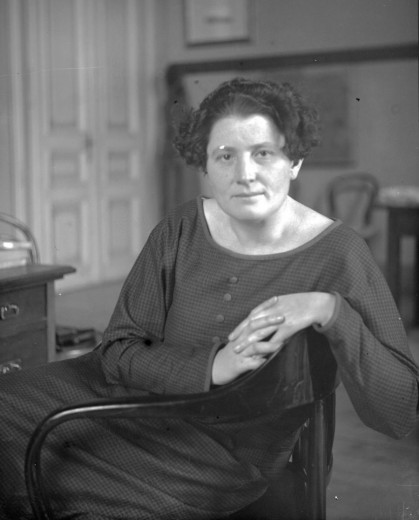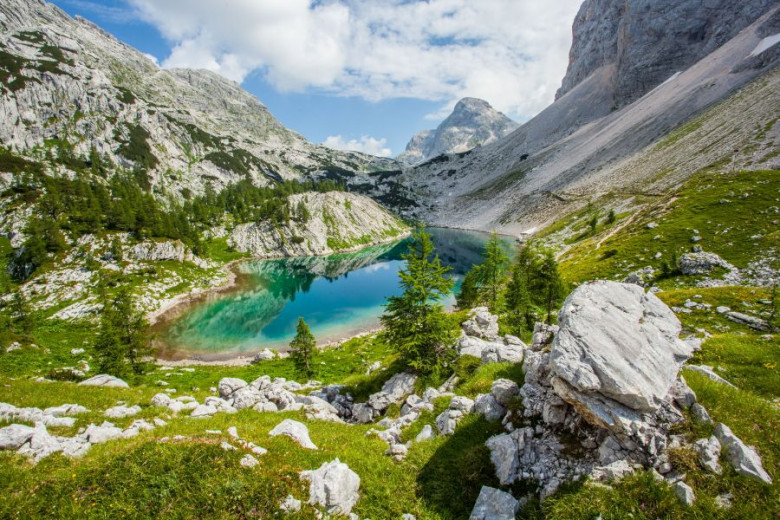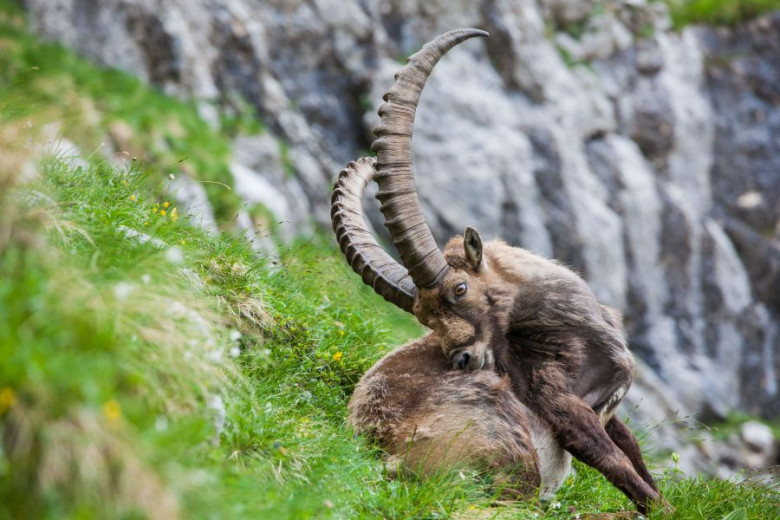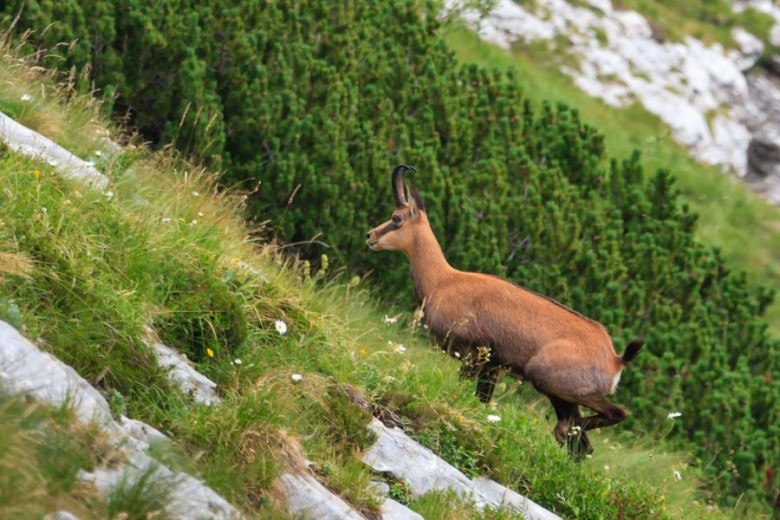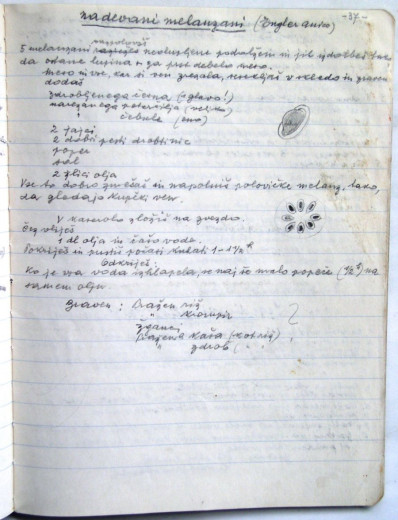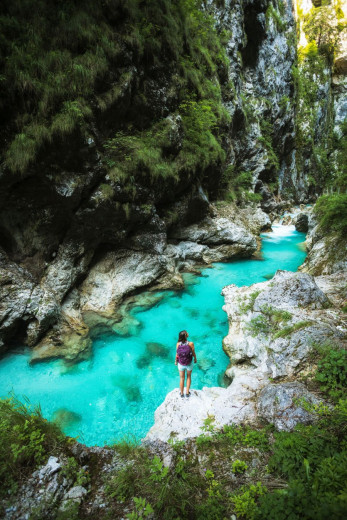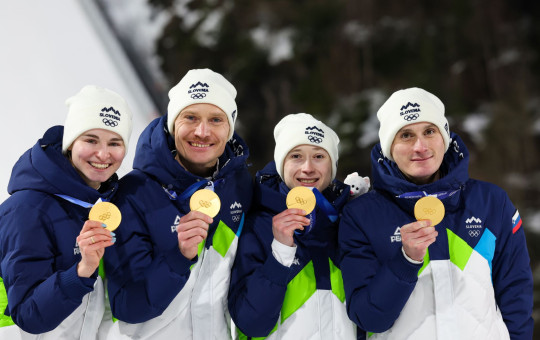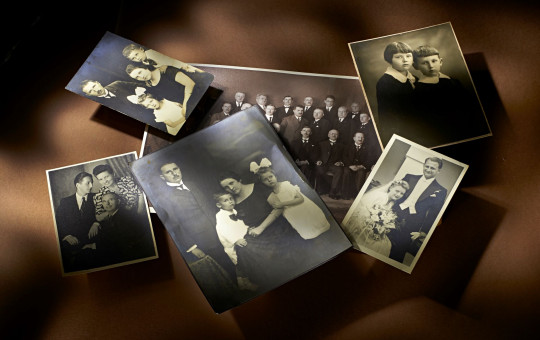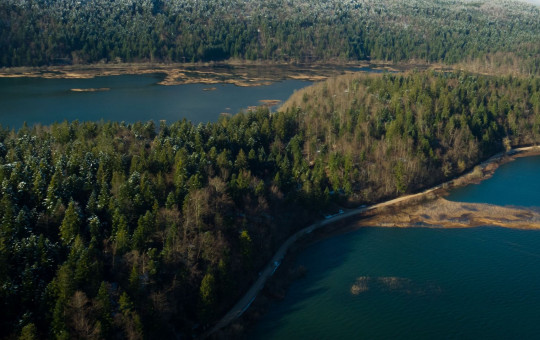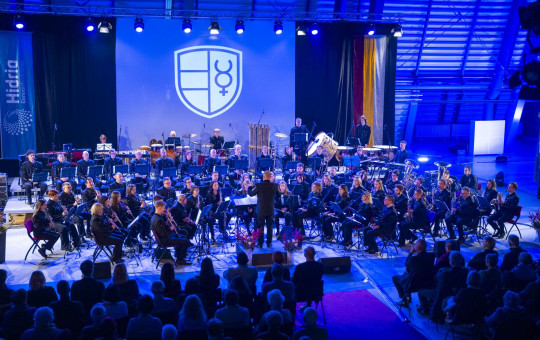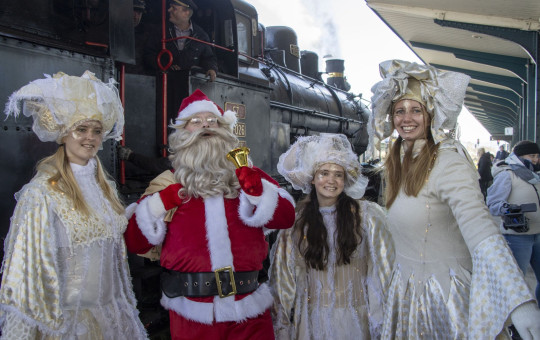Date: 20. April 2020
Time to read: 3 min
Angela Piskernik was the first Slovenian woman to hold an academic title in the field of the natural sciences. She was a botanist, an internationally recognised nature conservationist, a museum professional, lecturer and advocate for women’s and ethnic rights. She can also be credited for the creation of Triglav National Park.
Angela Piskernik (1886-1967) was a native of Koroška, from Lobnik near Bad Eisenkappel/Železna Kapla.
She was the first Slovenian woman to hold a doctorate in the natural sciences.
She was employed as an assistant at the National Museum, and taught at Ljubljana and Novo Mesto secondary schools, and was also the director of the Natural History Museum in Ljubljana. She wrote scientific botanical papers as well as popular texts, short stories and assessments, and sometimes even literary articles. She expressed her opinions publicly regarding social, women’s and ethnic issues.
But she is best known as a scientist and botanist.
Respect and admiration for the beauty of nature
The kingdom of the chamois, ibex and mountain eagles, Soča trout, capercaillie and other rare animal species, meadows and stone rock faces with rare flowers such as edelweiss, Triglav rose, Alpine toadflax and other plants. The sun reflects across the surface of the blue-green water, while the emerald green of the river and the translucent blue of the streams are enchanting. All of this is Triglav National Park, the only such park in Slovenia.
This is the kind of beauty that was recognised in this part of Slovenia by Angela Piskernik and other Slovenians, who strove to have the magical land below Triglav become a national park.
Triglav National Park was founded in 1961. In the very first year several articles and discourses were published concerning Triglav National Park, and especially its natural environment. The General Protection of Nature Act, something whichPiskernikadvocated, was passed in Slovenia only after her death.
Owing to her exceptional knowledge of botany, Piskernik is credited with the protection of numerous endangered plant and animal species. For this reason in 1967 she received the Van Tienhoven prize, which is awarded by the German foundation Stiftung F.V.S.
She can also take credit for the fact that during her time the mountain watch was established; initially in 1945 among scouts, while today it is part of the Alpine Association of Slovenia. In 1955 Slovenia became a member of the International Commission for Alpine Rescue, and Piskernik was an honorary member. She also worked with the Monument Protection Institute.
-
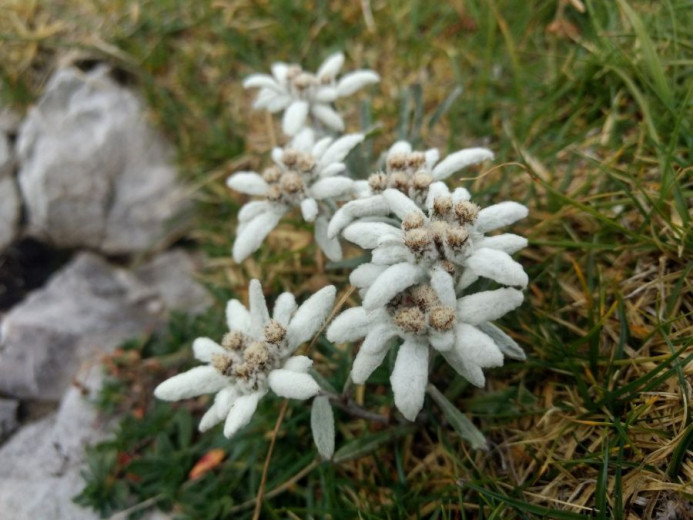 Edelweiss (Leontopodiumalpinum) is one of the best known European mountain flowers, which grows mainly on rocky limestone substrates at altitudes of 1,800 to 3,000 metres. It is not poisonous, and is used to treat respiratory and stomach disorders. It is considered a symbol of Alpinism, and is the national symbol of Austria, Switzerland, and also Slovenia. Photo: Aljoša Rehar/STA
Edelweiss (Leontopodiumalpinum) is one of the best known European mountain flowers, which grows mainly on rocky limestone substrates at altitudes of 1,800 to 3,000 metres. It is not poisonous, and is used to treat respiratory and stomach disorders. It is considered a symbol of Alpinism, and is the national symbol of Austria, Switzerland, and also Slovenia. Photo: Aljoša Rehar/STA
-
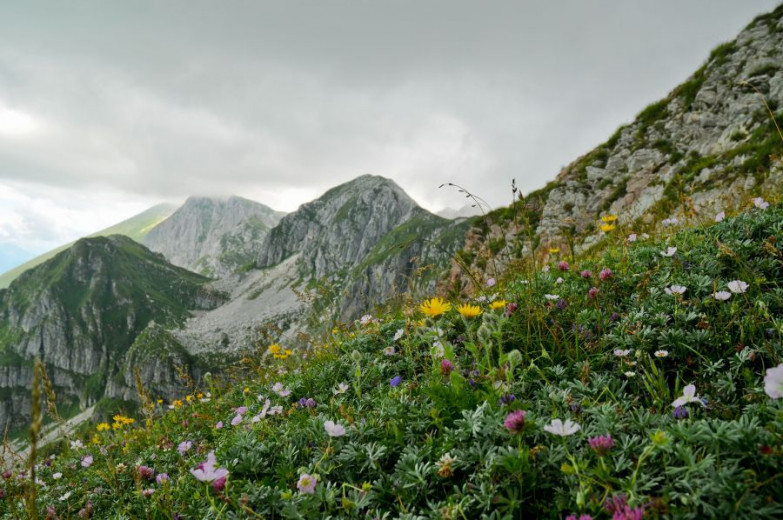 Alpine flowers. Photo: Aleš Zdešar/www.slovenia.info
Alpine flowers. Photo: Aleš Zdešar/www.slovenia.info
After the Second World War, as director of the Natural History Museum, she advocated the conservation of the Juliana Alpine Botanical Garden in Trenta and the protection of 56 endangered plant species, followed by several animal species.
She achieved a legal ban on the export of songbirds from Yugoslavia. Piskernik also spearheaded moves to protect the first important nature conservation areas in Slovenia, such as Krakovski gozd forest, Rakov Škocjan and Robanov kot.
After several years of preparation and collaboration with fellow botanists, the first edition of her handbook Ključ za določanje cvetnic in praprotnic (Key to Identifying Flowering Plants and Ferns)was published in 1941. The first edition contained a census of 2,222 plant species and subspecies and quickly sold out. The second, supplemented edition with 2,618 plants was published after the war (1951). This was her greatest achievement as a botanist. She also had material prepared for the third edition, but did not live to see it published.
"When we were hungry we told each other recipes, and it seemed to us that this helped against hunger," are the introductory words in the transcript of recipes from fellow internees at the Ravensbrück concentration camp in a compilation put together by Angela Piskernik. Thinking about preparing food in fact often helped the prisoners survive, representing a withdrawal from the cruel reality, dreaming of home and a reason to survive.
The recipes are accompanied by the names of their authors, and in places also sketches of the methods of preparation or of serving.
Alongside the recipes there are also occasional notes on what food could be served alongside the cooked dish, or there is the suggestion of an entire menu. The recipes written down in the camp are very varied in type and method of preparation, for these were dishes from homemakers of different nationalities. The method of noting them down also differed widely, with some being very precise, all the ingredients measured exactly and the procedures precisely listed, while others were very simple, requiring some previous knowledge of preparation to complete the missing details. Not everyone knows how to make a roast goose or goose liver today either, while mulled wine, polenta in one of five ways, various dumplings and rotolo, stews or homemade stock are things that anyone could still turn their hand to nowadays.
The book also contains some unusual homemaking advice, such as how to refine rancid oil. This is followed by an inventory of letters and packages from relatives and friends that contained sugar, dried fruit, marmalade, sausages and other foodstuffs vital for the survival of the internees.
The collection of recipes does not demonstrate Piskernik’s love of cooking, for she had none, but it represents an expression of defiance against the camp system, which cruelly suppressed any form of writing, while at the same time it is a souvenir and aide-memoire.
Given of angels
This description of Piskernik derives from her first name, Angela, and her work was truly a form of protection in various fields. In addition to botany, she is known for her work with grammar, for she wrote several books on German and German verbs. She systematically collected ethnological material, stories of folk customs, habits, legends, fairy-tales, and also wrote short stories and articles, while before the war she had her own show on the radio twice a week.
Piskernik was an exceptionally spirited woman. In many photographs she is the only woman among her male professional and student colleagues, as well as in pictures taken during her leisure time. Her strong-willed nature also came to the fore in political demonstrations.
In the Koroška region she held such political and historical importance that she can be ranked alongside General Rudolf Maister (1874-1934), who championed the northern Slovenian region Styria.
She was also the only woman in the Ljubljana intellectual circle in the 1930s called the Copata (Slipper) club. She was also a muse for intellectuals who gathered around the priest Fran Saleški Finžgar (1871-1962).
Her rebellious nature was evident in the fact that she would frequent cafés without male accompaniment, which at thetime was not acceptable, especially since Angela was an exceptionally attractive and eye-catching young woman, and had no lack of admirers. Nevertheless, she spurned men, and was not troubled by the notion of it being proper and seemly to get married.
She wrote about this sincerely in one of her feminist articles: "It seems to me that my concept of the natural calling of a woman differs widely from that of many other people.To be a married woman and bear children, in my eyes these are just one part of a woman’s natural calling; the third thing is what is most important for me: the culture of one’s own spirit.To sacrifice this and live off the crumbs of soul food that might happen to get mixed in with the ashes of my fireplace, would be hard for me.Hence you have already observed that I have not, for instance, sacrificed much for science or my profession, since the second and third parts of a woman’s natural calling have remained with me. My current profession grants me the awareness that I am doing something necessary and useful; I am satisfied and happy."
She was a vital part of her time
Angela Piskernik was a person whose life helped to shape the character of the intellectual milieu of Slovenian thinkers in the dramatic first half of the 20th century. Her long-term romantic partner was the art historian and conservator France Stele (1886-1972), and she rubbed shoulders with General Rudolf Maister, the priest Izidor Cankar (1886-1958) and the literary historian France Kidrič (1880-1950). Until the end of her life she remained single and devoted to scientific and teaching work.

